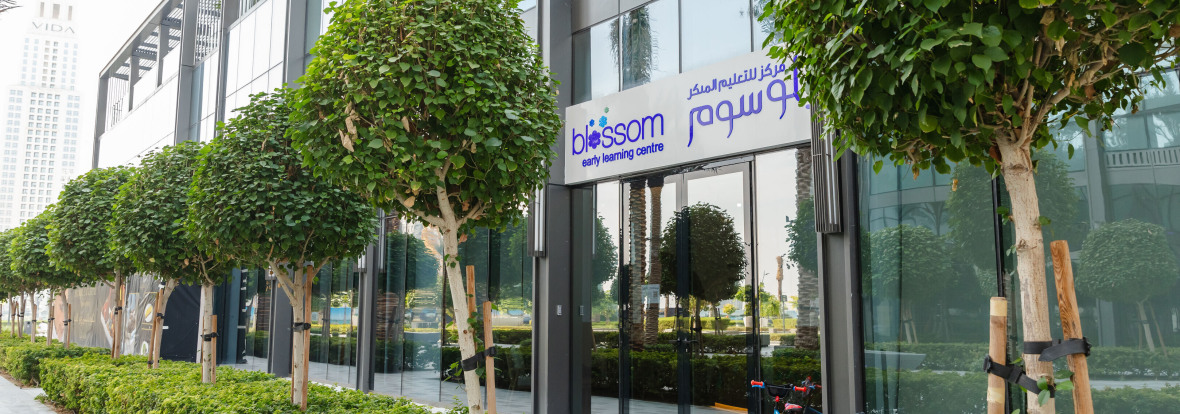Providing Eco-Friendly Solutions To Parents

You may have fully enjoyed your vacation and are ready to tackle this new school year (or not)... What if you decided to start this new academic year with a few good resolutions? Nothing too complicated or outlandish... just some simple tips to incorporate into your daily routine to protect your child's health and the planet!
From food, toys, hygiene, to clothing, there are many ways to reduce our impact without overthinking it. So, are you ready to switch to eco-mode? Let’s go!
How to Be an Eco-Friendly Parent?
Being a parent is not easy, and being a new parent is even harder. You must dive into a world that was still unknown to you not so long ago and learn a lot of new things. This new way of life also generally comes with new consumption habits. You know better than anyone that your shopping cart is now much fuller than before: diapers, cleansing gel, liniment, toys, etc. A child consumes a lot!
All these products have an impact on both the environment and your child's health. Rest assured, we are all in the same boat: we don’t always have time to go to that organic store located 45 minutes from home, nor do we always want to spend 25 AED for just one small organic jar. Yet, that little voice in our heads sometimes pushes us to try to be more eco-friendly, especially now that we have a child.
Did You Know?
The "1000 Days" period is the time from pregnancy to entering preschool. Neuroscience confirms that during this time, the brain develops at an astonishing speed. Meanwhile, the environment plays a key role in their learning and health. That’s why it’s important to provide a healthy environment so that they have all the tools they need for a healthy future.
#1 Nutrition: How to Reduce Your Carbon Footprint?
Food accounts for 25% of our carbon impact. It is a major issue for both health and the environment. The harmful effects of certain agricultural practices are numerous: greenhouse gas emissions, soil, water, and air pollution, deforestation, decline of pollinators, food insecurity… But there is growing awareness, as 62% of the population has changed their consumption habits to reduce their environmental impact.
The simplest tip: choose products based on the amount of packaging they contain. You can also avoid processed foods and opt for seasonal products. This way, you eat healthier while reducing your environmental impact.
#2 Toys: How to Favor Sustainable Products?
70% of toys are no longer used 8 months after purchase, and two-thirds are then thrown away. Between the toys we receive as gifts and those we buy, we generally end up with a large number of toys that are not always used.
The simplest and cheapest tip: favor "homemade" activities, such as magic sand or salt dough. You can also support second-hand buying or selling (local charities, recycling centers, or second-hand websites). According to ADEME(The French Agency for Ecological Transition), 72% of children under 15 would accept receiving second-hand toys for the holidays.
#3 Clothing: Let’s Try to Do Less, But Better!
Fashion is one of the most polluting industries, and according to ADEME, the fashion industry will account for 26% of CO2 emissions by 2050. So, how can we reduce our impact related to clothing? It’s not easy, and clothing can quickly become expensive, so how can we be more eco-friendly while also saving money?
The simplest tip: as often in ecology, second-hand shopping is one of the simplest and least expensive solutions. You can turn to second-hand websites to buy your child's clothing. If you decide to buy new clothes, opt for responsible materials by trusting labels such as OEKO-TEX, Ecolabel, Ecocert textile, or Bluesign.
Some stores offer second-hand clothing at prices sometimes 50% lower than new clothes. After all, fashion is a never-ending cycle; nothing is thrown away, everything is transformed. Vintage is trendy!
#4 How to Manage Waste Effectively?
A good foundation for managing waste is to keep in mind "The 3 R's" rule:
- Reduce waste
- Recycle waste
- Reuse waste
This seems quite logical, but it’s important to keep it in mind daily to limit waste.
The simplest tip: Donate what you no longer use and repair what no longer works (if possible). To reduce waste, you can also choose products with less packaging or that are reusable, such as water bottles or sponges.
There are also other small actions to implement, such as using natural cleaning products for home maintenance or choosing second-hand furniture for your little one’s room. The general idea is to move at your own pace in the right direction.

Babilou France Team
Babilou France is part of the Babilou Family Group, like The Blossom Nursery. Together across the globe, we leverage Experts' insights and tips to bring more value to our global parents’ community.










Babilou France Team
October 2, 2024